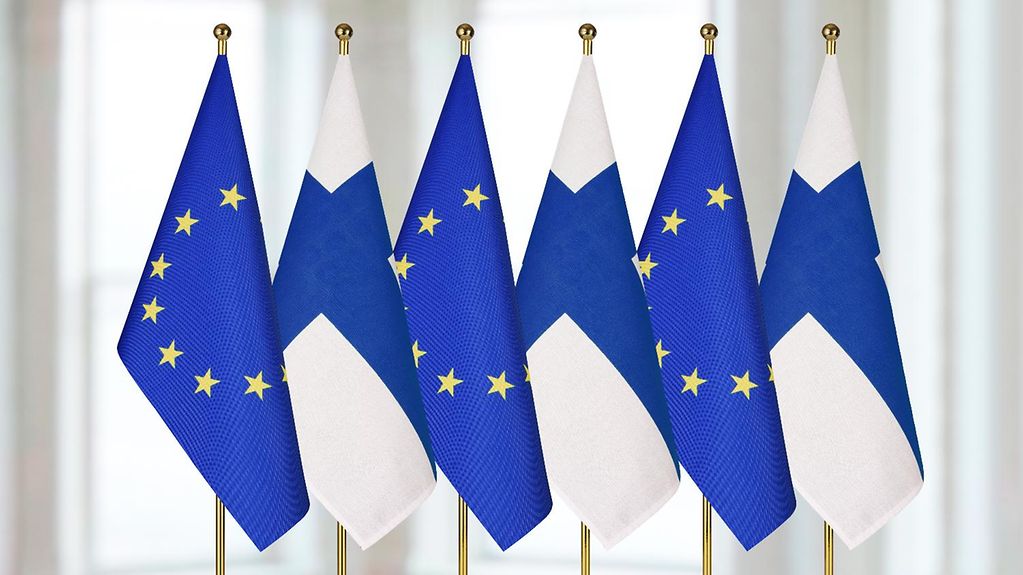Finland takes over the Presidency of the Council of the EU
Finland takes over the Presidency of the Council of the European Union on 1 July 2019. Important goals are an ambitious climate policy, sustainable growth and a stronger Europe. The special aspect: Finland wants to leave an ecological footprint that is as small as possible during its Council Presidency.
3 min reading time

From 1 July, Finland takes over the EU Presidency for six months.
Photo: Getty Images/iStockphoto
Finland takes over the Presidency of the Council of the EU on 1 July, under the slogan "Sustainable Europe - Sustainable Future".
Finland is committed to social, economic and environmental sustainability, declared Prime Minister Antti Rinne in Helsinki, shortly before assuming the Presidency. A key priority will be climate action. This includes the EU committing to climate neutrality by 2050. The aim is for the Council of the EU to reach agreement on the main elements of this plan by the end of 2019.
Focal points of the Finnish Council Presidency
The Finnish Presidency programme focuses on four main priorities:
- strengthening common values and the rule of law,
- making the EU more competitive and socially inclusive,
- strengthening the EU's position as a global leader in climate action and comprehensively protecting the security of all EU citizens.
It is particularly important to the Finnish Presidency to make further progress during the negotiations on the multiannual financial framework from 2021. The discussions have already begun under the Austrian Presidency.
Other items on the agenda include the topics of migration, the jointly structured defence policy, the internal market and trade.
Since its accession to the EU in 1995, Finland is holding the Presidency for the third time. The Finnish Presidency is the second part of a trio presidency with Romania and Croatia. This means: it takes over the Presidency from Romania, and hands it over to Croatia. The three countries are working closely together. In preparation for their role, they developed a common programme for the Council for the relevant 18-month period.
Setting an important course
During the Finnish Presidency, there are important decisions to be made: newly filling the EU top jobs after the European elections, and the possible British exit from the EU.
Finland is also the first country holding the Presidency which will implement the new Strategic Agenda for 2019-2024. This was adopted by the European Council in June. It sets out the priorities for the next five years, and serves as a guideline for the work of the EU.
Finland - a sustainable Council Presidency
Finland has also set the goal of leaving an ecological footprint that is as small as possible during its Council Presidency. Therefore, there will not be the customary informal European Council of heads of state and government. The number of informal ministerial councils will also be kept to a minimum.
In addition, all meetings will take place at the same location - in Helsinki. Traditionally, the meetings are held in different cities of the country holding the Presidency. The meeting place in Helsinki is also easily accessible for all guests by public transport or by bicycle.
Furthermore, there will be none of the customary gifts such as pens or bags. The funds reserved for this purpose will be used towards compensation for the flight emissions of the conference guests. In order to minimise the use of plastics, the conference guests will only be served pure Finnish tap water instead of bottled water, and seasonal Finnish organic food from the region.
Council of the EU Presidency: What's it all about?
The Presidency of the Council rotates every six months among the governments of the EU member states. During these six months, the incumbent chairs the meetings and conferences at all levels of the Council. It is responsible for leading the deliberations of the Council on EU legislation, ensuring the continuity of the EU’s agenda, and encouraging cooperation between the member states. More information is available here.